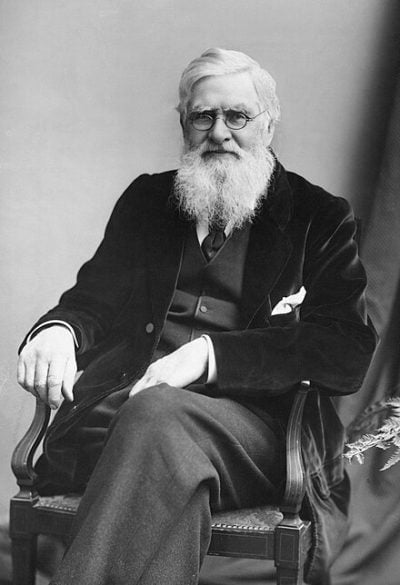Whither the Antiwar Movement?
This article provides a pretty good overview of why the antiwar movement is so tiny and ineffectual. The antiwar movement of the early 2000s was a cover for an anti-Republican movement, that quickly disappeared when Barack Obama was elected, even if there were no substantive changes in US foreign policy. Here are some of the author’s main points:
“The rallies and protests in the early 2000s attracted significant numbers but they were weighed down by far-left organizations like the World Workers Party, which brought with them myriad other issues beyond war like global warming and poverty. There was also long-held and fairly broad skepticism about the intentions of United For Peace and Justice (UFPJ) and the A.N.S.W.E.R. Coalition, which organized most of the big protests over the last 17 years. This was due to the “big tent” affiliations of some of their steering committee members, which critics say led to a dilution of the message and drove the anti-war movement further from the mainstream. “
What the author is saying that the massive antiwar rallies of the early 2000s were frequently organized by Commie-front groups, for the sake of creating a revolutionary leftist movement under their leadership, and not opposing imperialist aggression per se. The antiwar movement was only a vehicle for advancing revolutionary Marxism-Leninism, and trying to bring other left movements under their umbrella as well. Hence, the emphasis on the “big tent” that you find at leftist antiwar rallies, where antiwar banners and signs will be displayed along with banners about a multitude of other issues, from climate change to transgender rights. This is a standard Marxist-Leninist organizing technique, and one that is very familiar to those of us with decades of experience with the far left.
“Perhaps the movement’s biggest weakness was that it shied away from directly attacking its own—the liberal Democrats who voted for the war in Congress. In a sense, Democrats did emerge as the de facto anti-war party during the Iraq war, but that was only because a Republican—George W. Bush—was commander-in-chief.”
As I said above, the “antiwar”movement was an anti-Republican movement, not an actual antiwar movement. This does not invalidate the antiwar protests of the Bush era. Antiwar protests organized and led by opportunistic Commie-cults are better than no antiwar protests at all. It’s just that an awareness of the limitations of these circumstances needs to be maintained.
“The same thing happened to the anti-war right, as the Ron Paul movement took off in 2008 with an immense level of grassroots energy. One of the singular successes of his movement was the ability to reach people on an intellectual and practical level about the folly of our foreign interventions and the waste, fraud, and abuse of tax dollars…After Paul’s 2008 defeat, conservative political activists seized upon the Texas congressman’s libertarian-leaning revolutionary momentum and channeled it into the Tea Party—while leaving the non-interventionist impulses behind.”
In other words, right-wing libertarianism is easily coopted by Republicans who only care about the deregulation of corporations and tax cuts for the rich. This is obvious to those of use who have been observing libertarianism for decades.
“Drone attacks made fewer headlines because they supposedly caused less collateral damage and kept U.S. troops out of harm’s way, which was portrayed by administration officials and the war establishment in Washington as progress.What the drone program did, in essence, was to create the illusion of “less war.””
In other words, Americans are indifferent mass murder committed by the US state if no sacrifices are required on their side in terms of casualties, etc. Again, this is obvious to those of us who are long time observers of US foreign policy.
“So where should the anti-war movement go from here? Perhaps it should begin by tempering its far-left impulses and embracing its allies on the right who have been made to feel unwelcome. They could take a lesson from right-leaning places like Antiwar.com and TAC that have long been open to writers and activists on the left.”
Ain’t gonna happen. The Left is not interested in working with the Right on any issues of agreement, because the goal is not to address the actual issue, but to use the issue to advance a broader leftist agenda. This is not to say that there are not sincere antiwar people on the Left, or that there are not left-wing activists who take actual issues seriously, even to the point of coalitioning with people on the Right when appropriate. For example, the ACLU will sometimes coalition with groups like the NRA on civil liberties issues, and some criminal justice reformers will coalition with Republicans who are interested in the same issues. But neither Democratic Party partisans or Commie-cults would want anything to do with Antiwar.Com or The American Conservative.
“In addition, the few on the anti-war left who oppose war based on pacifist or religious reasons need to acknowledge that the majority of Americans believe in a strong national defense as outlined in the Constitution. Most people are willing to accept that there’s a big difference between that and the terrible waste and tragedy that comes with waging unnecessary wars overseas.”
Once again, most Americans don’t care about US imperialist aggression unless they feel personally threatened by it, i.e. vulnerability to the draft, high casualties, war taxes, rationing, etc.
“Americans today are tired of war, which is good, for now. Unfortunately, without a strong anti-war movement, there won’t be much resistance when the next “big threat” comes along. The two major parties have proven to be false friends when it comes to opposing war—they only do it when it suits them politically. Moving beyond them and becoming stronger with allies and numbers—imagine, there’s no parties—is the best way to build a real opposition.”
Americans are tired of war because “their side” keeps losing. The US hasn’t experienced a decisive victory in war in the last 25 years, and only against puny opponents in the 20 years before that. Ultimately, US imperialism will have to be defeated not by a domestic antiwar movement, but by persistent defeat by fourth generation warfare forces, by the eclipsing of American power by the rise of the BRICS-Shia-Global South axis as a counter balance to post-Cold War unipolarity, and the creation of a multipolar international system.
By Daniel Martin
The American Conservative
“Imagine there’s no heaven…and no religion too.”
A more useful line when it comes to our current wars may be “Imagine there’s no duopoly.” It’s hard to fault John Lennon for his idealism, of course. In his day, many blamed religion on the wars of history. But a much bigger obstacle right now, at least in the U.S., is partisanship. The two major political parties, in power and out, have been so co-opted by the war machine that any modern anti-war movement has been completely subsumed and marginalized—even as American troops and killer drones continue to operate in or near combat zones all over the world.
Aside from the very early days of the Iraq war, the anti-war movement has been a small, ineffectual pinprick on the post-9/11 landscape. A less generous assessment is that it’s been a bust. After liberals helped elect the “anti-war” Barack Obama, the movement all but disappeared, even though the wars did not. By putting a Nobel Peace Prize-winning Democratic face on his inherited wars, Obama expanded into new conflicts (Libya, Syria, Yemen) with little resistance, ultimately bombing seven different countries during his tenure. By 2013, Code Pink founder Medea Benjamin lamented, “We’ve been protesting Obama’s foreign policy for years now, but we can’t get the same numbers because the people who would’ve been yelling and screaming about this stuff under Bush are quiet under Obama.”



